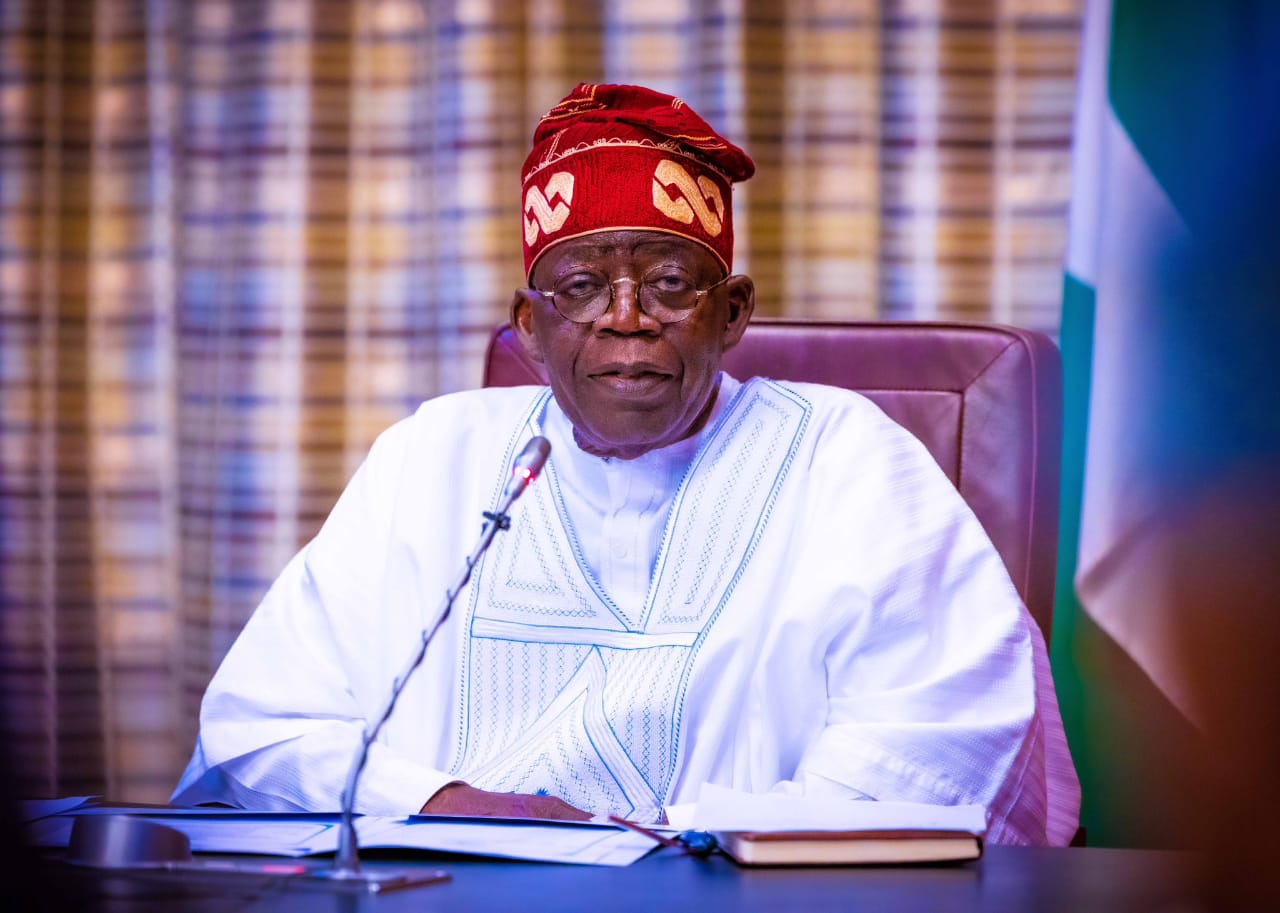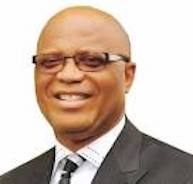COVER
Christian Groups Task Tinubu on Good Governance

By David Torough with Agency reports
A cleric, Dr Cosmas Ilechukwu who is convener of The Change We Need Nigeria Initiative (TCWNNI) has advised President Bola Tinubu and politicians to deliver good governance, not palliatives to tackle the hardship visited on Nigerians following the removal of fuel subsidy.
Ilechukwu, is the General Overseer, Charismatic Renewal Ministries (CRM) made the remark at the 14th edition of the TCWNNI Project held in Abuja.
“Nigerians don’t need palliatives; what we need is good governance.
“If things are done well, we don’t need palliatives,” he said.
Similarly, the Mothers Union and Women’s Guild of the Church of Nigeria (Anglican Communion) yesterday urged the Federal Government to reconsider the removal of subsidy on petrol.
The President of the group, Mrs. Angela Ndukuba made the call at the closing of its 24th annual conference titled “Walk Before Me and Be Blameless” in Abuja.
Ndukuba said that proper and effective measures should first be put in place and local refineries rehabilitated before subsidy removal.
She said that the removal of subsidy on petrol has affected the overall economy and resulted to untold hardships to the masses.
DAILY ASSET recalls that Tinubu used his inaugural address to make a major policy announcement to ease pressure on government finances wherein he said the decades-long subsidy on petroleum products was scrapped.
Immediately, pump price of petrol jerked up from N185 to N570 and later to N617. Now, the fuel price is between N613 and N650.
The abrupt removal of subsidy led to very high inflation in Nigeria as the movement of goods and services is heavily depended on motor vehicles which rely on petrol.
In June, the headline inflation rate rose to 22.79 percent relative to May headline inflation rate which was 22.41 percent.
The annual inflation rate climbed to 25.8 percent in August from 24.08 percent in July and marking the highest rate since September 2005, reflecting the impact of the removal of fuel subsidy, the devaluation of the official exchange rate and security issues in food-producing regions.
The naira, driven mostly by speculative demand as individuals turn to the dollar as a store of value, fell to a record low on the black market recently. A unit is quoted at N1015 to the US dollar.
The pressure on the naira shows that liquidity in the official market is unable to support about $400 million petroleum importers need monthly to import refined fuel, given their 70 percent control of the market, a trader observed.
Ikechukwu said it was time Nigerians demand accountability and good governance from their leaders at the federal and state levels.
“We have to demand it; it is our right. If we ask people to lead us they should lead us well.
“That is the essence of social contract.
“Let the common wealth we bequeathed to you be used for our common good,” he said.
Ndukuba on the other hand observed that the removal of subsidy has affected transportation, housing, prices of foodstuff, school fees and every aspect of life in Nigeria.
She said, “We are calling on the states and Federal Government to be mindful of the plight of the citizens and alleviate their sufferings.
“Giving N8,000 to 12 million Nigerian households or increasing salaries is not the solution, what will be the fate of those who are not salary earners and the unemployed?”
Ndukuba said those palliative measures would only increase the already rising inflationary rate in the country.
She said government should go into mass transportation, provision of other social amenities as well as making food available to the public at affordable prices.
“Our refineries should be put in order and made to serve the nation and stop fuel importation,” she said.
The president commended the Chief of Defence Staff, Maj.-Gen. Christopher Musa and all security chiefs in their efforts to curb insecurity in the country.
She called on all the security agencies not to relent in their efforts at making the country a safe place.
Ndukuba admonished all women to engage in farming and growing of foods and animal husbandry to sustain their families and contribute to the economy of the country.
She said with the current food shortage and very high cost of living, farmers should be encouraged by making fertilizer and high breed seeds available.
According to her, farmers should be supported to move from sustenance farming to mechanised farming.
The president urged the women to be agents of transformation, saying that it could start with having faith in Christ Jesus.
The Federal Government in August approved N5bn palliative for each state and the Federal Capital Territory (FCT). It also released five trucks of rice each to the 36 state governors.
The N5 billion was for the states to procure food items and distribute to the poor.
The governors were expected to procure 100,000 bags of rice, 40,000 bags of maize and fertilizer.
Whether all this has given succor to the mass of the people cannot be easily explained as it has been a subject of controversy in some states.
A commissioner was physically assaulted over the distribution of palliatives in Ondo State.
COVER
FG N50bn Green Bond Oversubscribed, Draws N91bn

Investors again demonstrated confidence in the Federal Government of Nigeria (FGN) Securities by the high level of subscription of N91.42 billion recorded in the recent Sovereign Green Bond offer.The offer, which closed on Wednesday was for N50 billion and represents the third Green Bond Issuance by the Debt Management Office (DMO) on behalf of the FGN.
According to a statement by the Director-General of the DMO, Patience Oniha, the issuance attracted strong investor interest, with total subscriptions reaching N91. 42 billion, representing a subscription rate of 183 percent.Oniha said that the impressive demand reflects investor confidence in Nigeria’s growing Green Bond market and its commitment to sustainable finance and development, as well as climate action.“Investors were allotted a total of N47.355 billion at a coupon of 18.95 percent per annum.“Proceeds from the issuance will be used to finance projects in the 2024 Appropriation Act that supportNigeria’s Nationally Determined Contributions (NDCs) under the Paris Agreement and its broader climate commitments, including the target to achieve net-zero emissions by 2060.“The strong investor interest in this Green Bond demonstrates growing confidence inNigeria’s commitment to sustainable financing,” she said.According to her, Green Bonds are becoming an increasingly important instrument for mobilising capital towards our climate objectives and sustainable development agenda.The Green Bond is yet another contribution of the DMO towards the deepening of the domestic capital market.The DMO had held an investors forum for the Series III Sovereign Green Bond issuance on Monday in Lagos.At the forum, Oniha said that Nigeria was taking a significant step in tackling climate change with the planned issuance of the Sovereign Green Bond.She said that the initiative aimed to fund environmentally sustainable projects and reinforce the nation’s commitment to the Paris Agreement.According to her, the offer is a continuation of Nigeria’s climate financing journey following earlier issuances in 2017 and 2019 that raised N25.69 billion.She said that the five-year green bond would provide funding for Nationally Determined Contributions (NDCs) to reduce greenhouse gas emissions. (NAN)COVER
Military Eliminates 6,260 Terrorists in Two Years, Says DHQ

By David Torough, Abuja
The Defence Headquarters (DHQ) said 6,260 terrorists have been killed while 14,138 terrorists and other criminals were apprehended in joint military operations across the country in the past two years.The Deputy Director Defence Media Operations, Brig.
-Gen. Ibrahim Abu-Mawashi, revealed this while giving an overview of military operations in two years, at the Expanded Parley with Media Executives yesterday in Abuja. The parley was being held to mark the two years in office of the Chief of Defence Staff (CDS), Gen. Christopher Musa and other service chiefs.Abu-Mawashi said the troops of the armed forces also rescued 5,365 kidnapped victims and recovered a large cache of arms and ammunition in different operations within the period.Giving details of military successes in each of the region, he said the troops of Operation Delta Safe in the Niger Delta region recovered N83 billion worth of stolen crude oil.Abu-Mawashi said the troops also killed 103 criminals, apprehended 2,760 others and rescued 266 civilians from the kidnappers’ den.In the North East, he said the troops of Operation Hadin Kai intensified operations resulting in the killing of 1,246 Boko Haram and Islamic State West Africa Province (ISWAP) terrorists, while 2,467 of them were arrested within the period.According to him, the troops rescued 1,920 civilians, recovered 982 arms and 2,153 ammunition in the Northeast.In the North West, Abu-Mawashi said the troops of Operation Fasan Yamma killed 1,374 bandits, including their top commanders in Zamfara, Kaduna, Katsina, Kebbi and Sokoto State.“They also arrested 2,160 bandits and rescued 3,288 hostages from bandits enclaves.“The arms and ammunition recovered are 947 weapons and 25,802 rounds, respectively,” he added.The defence spokesman said troops on operations in the North-Central, killed 730 terrorists, bandits and violent extremists, and arrested 7,153 violent extremists.He said that a total of 1,510 civilians were rescued, while 1,065 weapons and 19,709 rounds were recovered.In the South East, Abu-Mawashi said the troops of operation UDO KA had in the past two years eliminated 440 terrorists while 1,677 criminals were arrested.According to him, the troops also rescued 294 civilians and recovered 683 weapons and 21,300 rounds of ammunition.“Finally, Joint Task Force South West killed 80 criminals and arrested 1,763 others, while they rescued 89 kidnap victims.“Troops recovered 143 weapons, and 177,904 rounds of ammunition,” he added.In his remarks, the Director Defence Information, Brig.-Gen. Tukur Gusau, said the event marked a significant milestone in their collective efforts to address and mitigate the complex security challenges confronting the nation.Gusau said the programme was conceived in alignment with one of the leadership philosophies of the CDS, which is “leading a people-centric armed forces”.He pledged the commitment of the military to ensuring that the Nigerian public remains accurately and adequately informed about the activities, achievements and sacrifices of the armed forces.COAS Hails 542 New Military Retirees over Selfless ServiceThe Chief Of Army Staff (COAS), Lt.-Gen. Olufemi Oluyede, on Thursday hailed the sacrifices and efforts of 542 military personnel who retired from active service.Oluyede made the commendation at the passing out event of Nigerian Armed Forces Resettlement Centre (NAFRC) Course 1/2025 in Lagos.Oluyede was represented by the Commander, Training and Doctrine Command, Maj.-Gen. Kevin Aligbe.The COAS said that the occasion was a tribute to the courage, sacrifice, discipline, resilience, selflessness and unwavering commitment of the retirees to the service of the country.“As you transit from the battlefield to civil life, I pray you will enjoy your post-service life and apply the knowledge and skills you have acquired.“You will from now on take full charge of your time as planners and executors of your personal daily activities.“This may sound exciting and promising but be aware that you need to properly manage your new vocations in order to be successful,” he said.Oluyede further urged them to maintain their honour before the civil populace, adding that the society would expect a high ethical standard and discipline from them.“You will also have to prove in your social and business interactions that you passed through a highly disciplined system.“I believe you are all capable of excelling in your future endeavours and will positively influence your environment by contributing to the security and development of your various communities,” he said.According to him, communities will look up to them to support safety and security initiatives as well as agencies to tackle community-based crimes and security challenges.“Please, be an advocate of peace and make yourselves available in providing such assistance within the ambit of the law,” Oluyede said.He, however, reminded them that post-service life has its peculiar pitfalls and challenges at individual level as such there was the need for extra care.“Some of these challenges you might encounter include; inadequate resources, misuse of retirement benefits, negative influences and deceit from fraudulent persons.“Others are poor management of physical and mental health as well as life devoid of regimentation and uniform-induced immunity to mention but a few.“It is therefore unwise to embark on an extravagant lifestyle that is above your means or engage in non-familiar business ventures,” he said.The COAS also said the essence of the training was to expose them to several vocational opportunities and management skills to have a meaningful life in retirement.“On this wise, I enjoin you to employ the experience and skills you have acquired for a productive economic life as you reintegrate into the society.“Continue to inspire, continue to lead and never forget that you are, and will always remain, heroes of our land,” he said.He thanked NAFRC and urged them to sustain the high quality human resource development training for retiring personnel and the society at large.“On our part, the Armed Forces leadership will continue to ensure that personnel welfare at all levels are given prime attention in line with our various command philosophies.“We will also sustain support for the advancement of this centre with a view to transforming it into an international centre of excellence for vocational training,” he said.The COAS commended the Chief of Defence Staff, Gen. Christopher Musa for his exceptional leadership and guidance.“I want to thank President Bola Tinubu for his support towards capacity development of the Armed Forces and the welfare for serving and retired personnel,’’ he said.COVER
Rivers Emergency Rule: Senate Justifies 2025 Budget Increase by N360bn

By David Torough, Abuja
The Rivers State Sole Administrator, Vice Admiral Ibok-Ete Ibak has presented a revised budget of N1.846 trillion to the Senate Ad-hoc Committee on Oversight, an increase of N360 billion from the initial estimate of N1.486 trillion submitted by President Bola Tinubu.
The revised budget includes allocations for security, pension and gratuity arrears, and capital projects to support economic growth and entrepreneurship. Chairman of the Ad-hoc Committee, Senator Opeyemi Bamidele defended the increase, citing the need to address the state’s pressing issues.Bamidele highlighted the allocation of N50 billion for pension and gratuity arrears, saying it’s a moral obligation and a peace-building effort.“One of the standout components of the revised budget is the allocation of N50 billion for the payment of outstanding pensions and gratuities.“These are citizens who served their state diligently and have waited far too long for their entitlements. We see this move as both a moral obligation and a peace-building effort.“Another major point of commendation is the budget’s structure. More than 70% of the total appropriation is earmarked for capital expenditure, while less than 30% is designated for recurrent expenses, including overhead costs.“This demonstrates a clear commitment to infrastructure, job creation, and development.“If our budgets focus more on capital projects, our people will see and feel the dividends of democracy.”The Senate Leader of the Senate assured that the Ad-hoc Committee would ensure faithful implementation of the Rivers State Budget, emphasising the importance of transparency and accountability in public fund utilisation.Earlier in his opening remarks, the Senate Leader also assured that the adhoc Committee would ensure faithful implementation of the Rivers State Budget.“As representatives of the Nigerian people, we are not only tasked with evaluating figures, but also with ensuring the faithful implementation of the budget.“It is our mandate to track how allocated resources are utilised – project by project, sector by sector – to guarantee transparency and uphold accountability in the use of public funds.“This means that our engagement today on the Rivers State 2025 Appropriation Bill does not end here.“We shall, in the coming months, assess the performance of the budget by closely monitoring disbursements, execution timelines, and delivery outcomes.“Our objective is to ensure that approved funds translate into meaningful development and that deviations or delays are addressed promptly in the overriding public interest.“Beyond the numbers, we must also evaluate the real-world impact of this budget on the everyday lives of the people of Rivers State. In times of political uncertainty and emergency governance, government actions must not only be lawful, but also people-centred. We must ask: will this budget deliver improved roads, healthcare, education, safety, and livelihoods for the people? “This, ultimately, is how we build trust in government and public institutions like ours.“




















